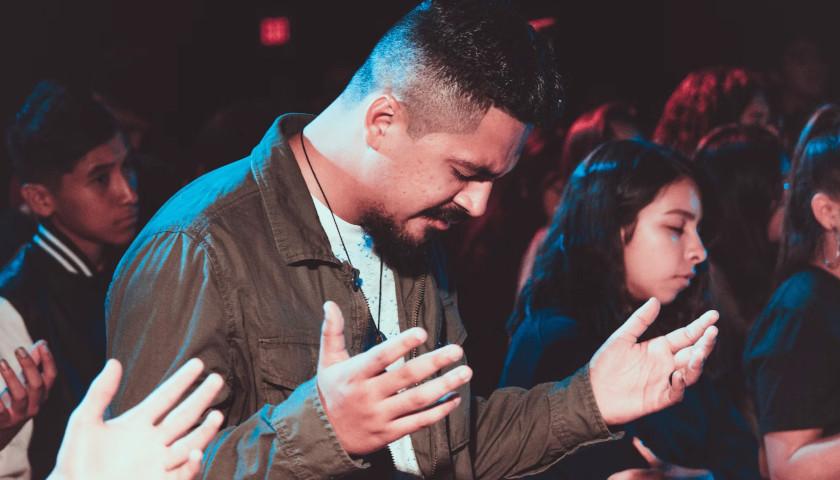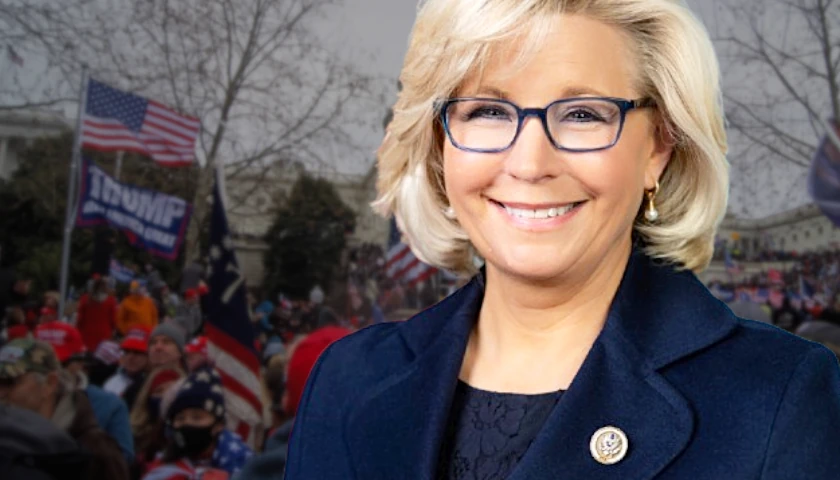by Susan Crabtree
More than half a century ago, Time magazine famously asked, “Is God Dead?” The black and red cover, the magazine’s first to include only text, sparked countless angry sermons and thousands of letters from readers accusing Time of engaging in tasteless nihilism, Marxist pandering, and outright blasphemy.
The question, which typified the counter-culture movement and the intellectual radicalism of the 1960s, was far off the mark both then and now. The United States has always been and remains a very religious nation despite steep declines in attendance at churches, synagogues, and mosques – trends that have captured far more headlines in recent years than the nation’s enduring faith. America is also a majority Christian nation, though other religious groups and affiliations and those identifying as non-believers are growing.
The nation also maintains a deep respect for religious freedom, the unfettered ability to worship as one chooses – or to abstain from doing so. Americans view faith-based liberty as a fundamental right dating back to the nation’s origins as a refuge for Puritans and others persecuted for their faith.
Those are some of the top findings from a wide-ranging RealClear Opinion Research poll of Americans’ views on religious views. The survey of 1,000 U.S. residents was conducted December 19-21 and has a margin of error of +/-3%.
Topline findings: The full polling breakdown
Respondents were asked a series of questions about their beliefs in religious, spiritual, and mystical entities: God, the devil, miracles, heaven, hell, reincarnation, ghosts, witches, and aliens.
Of the topics listed, respondents were most likely to believe in God, with 85% reporting they believe in a creator, compared to just 15% who don’t believe. The exact amount – 85% – also reported a belief in heaven, with just slightly less – 83% – believing in miracles. Of those surveyed, 80% also reported that they believe “Jesus is God or the son of God.” A smaller majority of those surveyed – 72% – say they believe in hell, while 70% report belief in the devil.
“Self-reported belief in God is highest in the South, at 89%, followed by the Midwest (85%), Northeast (83%), and West (81%),” said Spencer Kimball, who directed the survey.
Kimball, who is polling director at Emerson College, noted that belief in miracles decreases with age, even though all age groups still believe in miracles in high numbers. Eighty-five percent of Americans under 30 said they believe in miracles, while 77% of those over 65 do, he said.
A solid majority of Americans surveyed – 58.3% – identified as Christian, with 36.3% saying they consider themselves Protestant and 22% identifying as Catholic. Americans who said they belong to other religions or were non-believers were all in the low single digits: 3.2% said they are Muslim; 2.9% consider themselves Mormon; 1.9% identified as Jewish; Buddhists made up 1.6%; and Hindus accounted for just 0.5%. Meanwhile, 3.8% reported they are atheist and 3.7% identified as agnostic.
Even though those considering themselves members of religions far outnumbered non-believers, only 30% of those surveyed regularly attend worship services once a week or more. Another 12% reported attending once a month, 19% said they go a few times a year, and 11% said they show up once a year. Twenty-nine percent reported never attending formal worship services.
Despite the lax attendance, Americans strongly believe that they have the right to practice the religion of their choice in the manner they choose or not to practice at all. An overwhelming majority of all Americans – 94% – said they believe religious freedom is a fundamental human right. That figure is 10 points higher than those who view healthcare as a basic human right.
Most Americans also remain deeply respectful of the country’s religious roots. A strong majority of respondents – 83% – believe the phrase “In God we trust” should remain on U.S. currency and coins, compared to 17% who back the phrase’s removal.
“Republicans felt more strongly that the phrase should remain compared to Democrats, with 91% believing the phrase should be removed, compared to 78% of Democrats,” Kimball said.
Not surprisingly, most atheists – 70% – want the phrase removed. A slight majority of Buddhist and agnostic respondents agree, with 57% and 58%, respectively, supporting the phrase’s removal from U.S. currency and coins.
Considering their deep commitment to religious pluralism, it’s not surprising that most Americans are worried about the sharp rise in antisemitism and anti-Muslim sentiment in the wake of Hamas’ horrific Oct. 7 attack on Israel, and Israel’s counteroffensive.
In October, FBI Director Christopher Wray testified to Congress that antisemitism was reaching historic levels, with 60% of religious hate crimes being committed against Jews in America, who make up just 2.4% of the population. Wray also cited an increase in reported threats to Muslim people, institutions, and mosques in the United States, while pledging that FBI agents were working “around the clock” to stop any potential attacks.
Seventy-eight percent of those surveyed believe prejudice against Jewish people is a somewhat or very serious problem in the United States, while 15% think it’s a not-so-serious problem, the survey found. Just 7% say it’s not a problem at all.
When it comes to anti-Muslim views, 66% of those polled consider it a somewhat or very serious problem, while just 22% said it’s not a serious problem, and 13% said it’s not a problem at all.
Those numbers are far higher than the 43% of U.S. residents who are somewhat or deeply concerned about prejudice against Hindus and evangelical Christians.
Meanwhile, 39% view prejudice against atheists as a serious problem, slightly higher than the 34% who view anti-Catholic bias as a grave threat.
Most Americans, regardless of their political affiliation, view antisemitism as a serious problem, while non-registered voters vary. Eighty-one percent of Democrats and Republicans are deeply troubled by anti-Jewish views, along with 80% of independents and 62% of those not registered to vote.
Large majorities of Americans are also worried about anti-Muslim views, although there is a partisan component to the level of concern: 75% of Democrats view Islamophobia as a serious problem, compared to 64% of independents and 60% of Republicans.
Even though the vast majority of Americans believe in God, those personal views don’t translate to support for government bans on abortion, a flashpoint issue in state and national elections since the Supreme Court overturned Roe v. Wade in late 2022.
When asked if the government should regulate abortion, a majority of respondents – 63% – said abortion decisions should be left to women and their doctors. Only 37% said government should place limits on abortion.
Party affiliation is the most influential factor in whether Americans favor or oppose government regulation of abortion.
“Independent voters align more with Democrats than Republicans on the issue of abortion: 72% of Democrats and 73% of independents think decisions on abortion should be left to a woman and her doctor, while half of Republicans say the same,” Kimball said.
Gender also plays a decisive role. Seventy-one percent of women think decisions on abortion should be left to a woman and her doctor, compared to 56% of men who say the same. Twenty-nine percent of women believe abortion should be regulated by law, compared to 44% of men.
A majority of women over the age of 65 – 73% – believe abortion should be a decision left to a woman and her doctor, while 61% of voters under 65 years old have the same opinion.
– – –
Susan Crabtree is RealClearPolitics’ national political correspondent.





